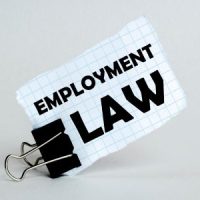Supreme Court Overruled Chevron Deference—What it Could Mean for Employment Law

On June 28th, 2024, the Supreme Court of the United States issued a major ruling that overturned the four-decade old Chevron Doctrine. In the case of Loper Bright Enterprises v. Raimondo, the nation’s highest court, eliminated the Chevron Deference. The decision is expected to have significant implications for many areas of administrative laws, including labor and employment. Here, you will find an overview of Chevron Deference, the new standard supported by the Supreme Court, and the potential implications for employment law.
What is Chevron Deference?
Chevron deference is a principle in administrative law that compels courts to defer to a government agency’s interpretation of ambiguous statutes it administers. This doctrine originated from the 1984 Supreme Court case Chevron U.S.A., Inc. v. Natural Resources Defense Council, Inc. Under Chevron deference, if a statute is unclear and the agency’s interpretation is reasonable, courts will uphold the agency’s decision. The principle is meant to recognize the expertise of agencies in their respective field. It provides the agency “home field advantages” for enforcing regulations.
An Overview of the Decision of the Supreme Court (Loper Bright Enterprises v. Raimondo)
In Loper Bright Enterprises v. Raimondo, the Supreme Court overturned the longstanding Chevron Doctrine. The new standard set by the Court requires courts to independently interpret statutory ambiguities without deferring to agency expertise. The decision arose from a dispute over whether the National Marine Fisheries Service could mandate industry-funded monitors under the Magnuson-Stevens Act. By rejecting Chevron deference, the Court’s conservative majority emphasized that judicial interpretation of law is paramount.
The Court reasoned that Chevron deference often allowed agencies to wield too much power without sufficient oversight, potentially leading to regulatory overreach. The shift intends to ensure that only clear and unambiguous directives from Congress empower agencies. It limits agency regulatory power. In a sharp dissent, the court’s liberal minority countered that overturning Chevron deference undermines the expertise of administrative agencies in interpreting complex regulations. The dissenting justices emphasized that agencies are better equipped than courts to handle specialized and technical matters.
Understanding the Implications for Labor Law and Employment Law
Loper Bring Enterprises is one of the biggest administrative law rulings in decades. It will likely have major implications for a number of different legal practice areas, including labor law and employment law. Without the Chevron Doctrine in place, courts will no longer defer to agencies like the Department of Labor when interpreting ambiguous statutes. The change could lead to more stringent judicial scrutiny of agency regulations—potentially resulting in fewer pro-labor interpretations of laws like the Fair Labor Standards Act (FLSA) and the National Labor Relations Act (NLRB). Employers may face less regulatory burden as courts may now limit agencies’ expansive interpretations of labor protections.
Get Help From an Employment Lawyer in Florida Today
Employment law is complicated. The overhauling of Chevron Deference could potentially have significant—and as of yet not totally foreseeable—effects on the future of labor/employment regulations. If you have questions about a specific case, our attorneys are prepared to help.

